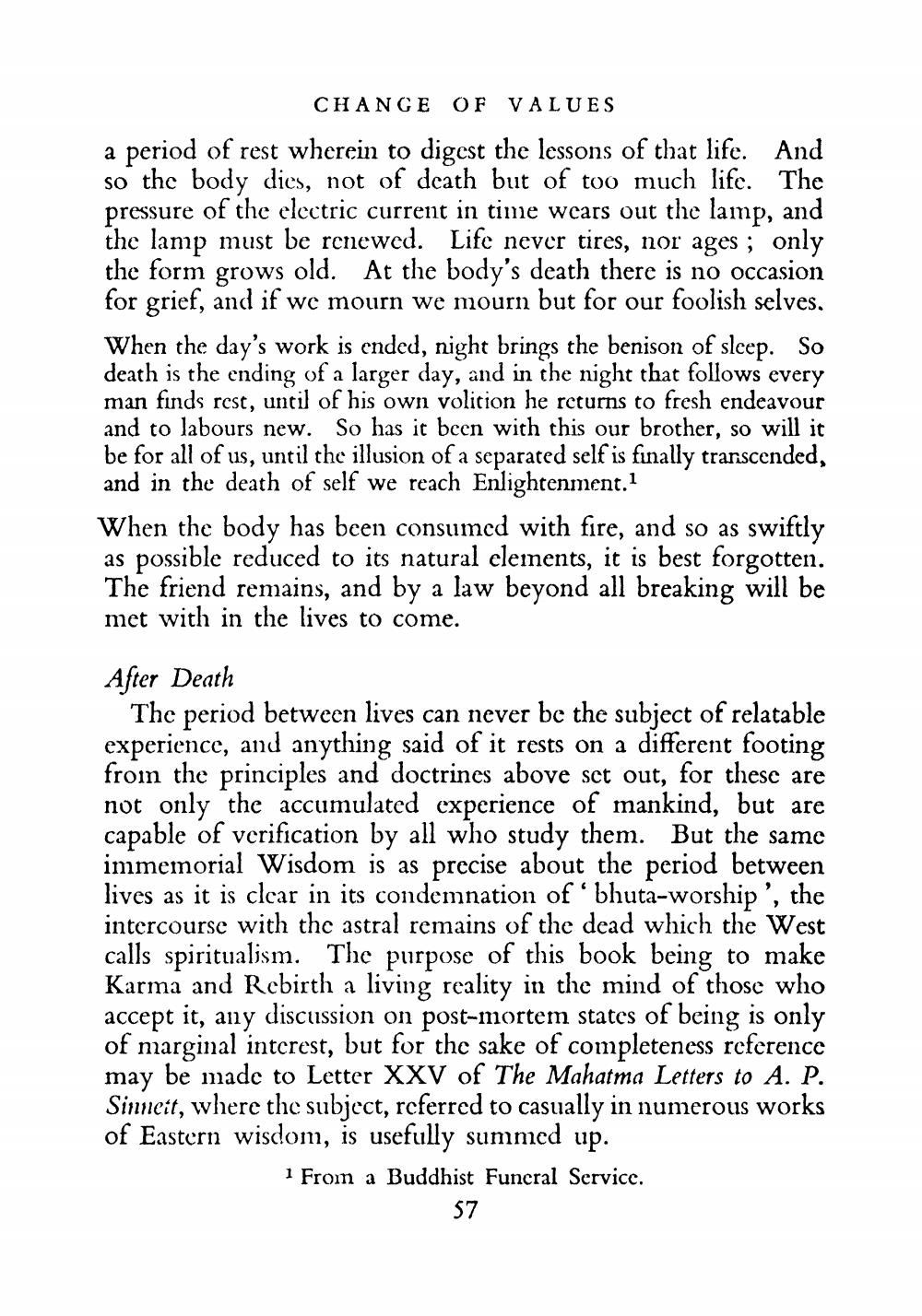________________
CHANGE OF VALUES a period of rest wherein to digest the lessons of that life. And so the body dies, not of death but of too much life. The pressure of the electric current in time wears out the lamp, and the lamp must be renewed. Life never tires, nor ages ; only the form grows old. At the body's death there is no occasion for grief, and if we mourn we mourn but for our foolish selves. When the day's work is ended, night brings the benison of sleep. So death is the ending of a larger day, and in the night that follows every man finds rest, until of his own volition he returns to fresh endeavour and to labours new. So has it been with this our brother, so will it be for all of us, until the illusion of a separated self is finally transcended, and in the death of self we reach Enlightenment." When the body has been consumed with fire, and so as swiftly as possible reduced to its natural clernents, it is best forgotten.
The friend remains, and by a law beyond all breaking will be met with in the lives to come.
After Death
The period between lives can never be the subject of relatable experience, and anything said of it rests on a different footing froin the principles and doctrines above set out, for these are not only the accumulated experience of mankind, but are capable of verification by all who study them. But the same immemorial Wisdom is as precise about the period between lives as it is clear in its condemnation of 'bhuta-worship’, the intercourse with the astral remains of the dead which the West calls spiritualism. The purpose of this book being to make Karma and Rebirth a living reality in the mind of those who accept it, any discussion on post-mortem states of being is only of marginal interest, but for the sake of completeness reference may be made to Letter XXV of The Mahatma Letters to A. P. Sinneit, where the subject, referred to casually in numerous works of Eastern wisdom, is usefully summed up.
1 From a Buddhist Funeral Service.
S7




